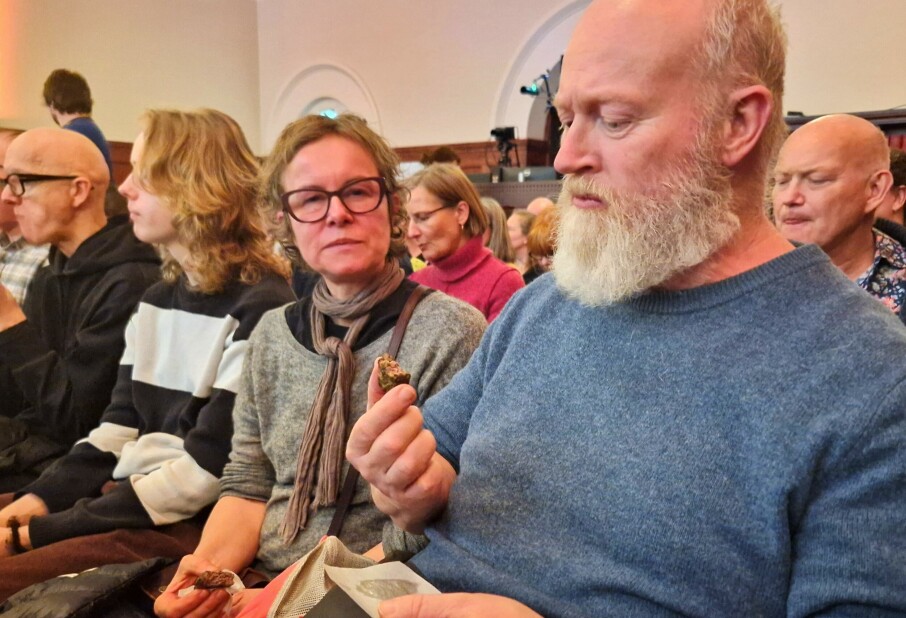
Researchers are generally happy with the popular press
Nine out of ten researchers in Norway are satisfied with coverage of their work in the media. Nevertheless, many think that journalists are too likely to resort to sensationalism.
Denne artikkelen er over ti år gammel og kan inneholde utdatert informasjon.
Norwegian academicians, like their peers in other countries, have periodically expressed scepticism about attempting to share their findings with the general public. This is because journalists and editors don’t really grasp the subject and can overlook vital nuances when they try to simplify the science. But a new study shows researchers are not as dissatisfied as we might think.
Nine out of ten Norwegian researchers consider research dissemination by means of interviews to be important. Seven in ten also think such media attention helps forge acceptance for their scientific endeavours.
“We were surprised by how positive the researchers were,” says Benedicte Carlsen at the University of Bergen’s strategic partner Uni Research Rokkan Centre. She admits to having seen some of her own biases about researchers’ lowly opinions of journalists invalidated.
Satisfied with the media
There is no denying that researchers often have some rather amusing stories to tell about calamitous encounters with media representatives. But the survey shows that such mishaps are the exceptions, rather than the rule.

“The most remarkable finding was that researchers are not as reluctant or avoidant with regard to the media as we might assume from general discussions about research dissemination,” says Carlsen.
She says that most scientists and researchers are satisfied with the news reports they generate.
Carlsen conducted the study along with colleagues Ingrid Birce Müftüoglu and Hanne Riese at the University of Bergen. Ironic as it might sound, they decided that statements on the quality of research dissemination circling among academics lacked a solid basis in research.
Degrees of satisfaction
A total of 848 researchers from an array of disciplines participated in the study. On the whole they were generally satisfied with the last interview of themselves in the media.
Seven out of ten answered that the reporting had been good and two out of ten were actually very satisfied.
The researchers explained that they used the media because:
- Journalists can be very helpful in getting the main thrust of a finding explained in a concise and comprehensible way because they understand the public better than the researchers do.
- Dissemination in the media can inform and influence society.
Over half had received positive feedback from colleagues. Only two percent received negative responses from fellow researchers.
This is consistent with the results from an extensive international survey, in which 75 percent of the researchers expressed having positive experiences with the efforts of journalists in spreading their research results.
Bombastic
Carlsen’s study shows that one in 20 think the media coverage of their work had failed to put the story across well.
A majority of the researchers think journalists use too much of a tabloid approach and this can lead to public misunderstandings.
Reporting by the media and cooperation with journalists is not always great, which can be demotivating. Many researchers are worried about encountering journalists who oversimplify subject matter and fail to include the scientists’ cautionary provisions and reservations.
Sensationalism triggers misunderstanding
As many as seven out ten researchers said that popularisation of research results can lead to misunderstandings among the general public.
Nearly as many think that journalists are too focused on sensationalism in their reporting of research.
Scepticism
Six out of ten researchers say it is hard to get journalists to include their cautions regarding the contingencies of their findings.
Some of the researchers had unfortunate experiences with the media and think substandard dissemination can have a negative effect on individuals and society.
Also, over half the researchers think that journalists lack knowledge about research and science.
Frustrating
Three out ten researchers get frustrated when trying to explain their research in interviews. Almost the same number complain that media contact is time consuming and detracts from their research work.
Several find it hard to get access to the media because journalists are concerned about hotter topical current issues. When their research themes are hard to popularise they are deemed irrelevant and thus attract no attention.
Social scientists most active
About two-thirds of the researchers answered that they had been interviewed about their findings. Half had been mentioned without an interview and 45 percent of the researchers had written their own feature articles or opinion pieces.
Social scientists and academicians in the humanities have more media experience than scientists working in health and medicine, the natural sciences and technical fields.
A total of 78 percent of the social scientists had been interviewed, as opposed to 55 percent of those with professions in the natural sciences. Social scientists such as historians and sociologists are twice as active on opinion and editorial pages as their academic counterparts in the natural sciences.
------------
Read the Norwegian version of this article at forskning.no
Translated by: Glenn Ostling






























